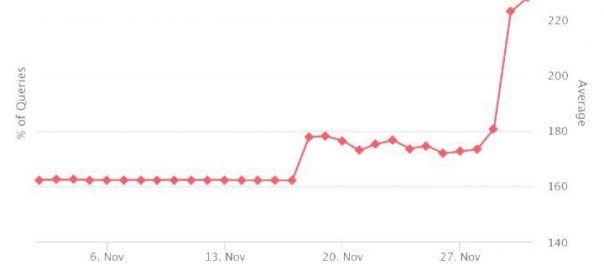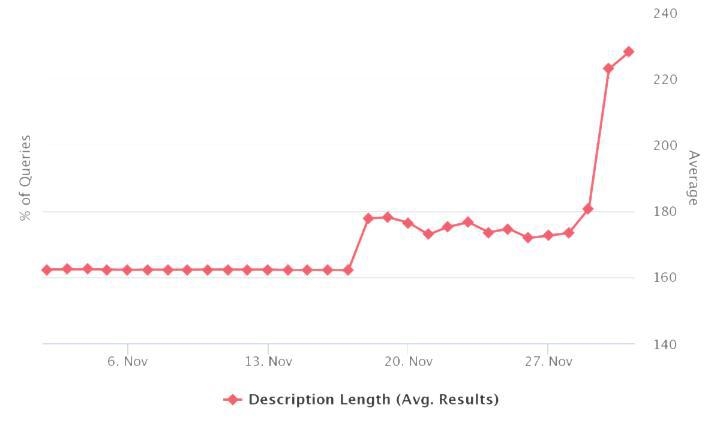— January 11, 2018
Google has confirmed that it has officially changed the way it displays snippets in its search result pages.
A snippet is that sentence or two below the URL in an organic search result – typically the description of the site – that helps the searcher know what to expect when they click the link.
Over the past few months, the rumor mill has been buzzing with speculation that this change was coming, with tweets like this one from SEO consultant Juan González:
@rustybrick Hi Barry! We’ve been seeing very strange SERPs full of uber long descriptions for the last few days. Dunno if it’s just a thing in Spain, or everywhere. I just asked John Mueller about it and didn’t deny it, this is what he said: https://t.co/84QKi2NBRs pic.twitter.com/Qci1xi89ER
— Juan González Villa (@seostratega) November 28, 2017
Though a justified question, as you can clearly see the length of the Google snippet is substantially longer, Google’s John Mueller had this to say to Juan’s inquiry:
We’re always working on search, there’s not really anything specific to say there. I don’t think we ever had a limit on description meta tag content length.
— John ?.o(???)o.? (@JohnMu) November 28, 2017
Snippets have pretty much always been dynamic. Counting characters isn’t really a good use of your time there.
— John ?.o(???)o.? (@JohnMu) November 28, 2017
It’s not just Twitter that has seen this change in snippet character count. RankRanger has seen the snippet character count jump from 160 characters to 230 characters, on average, almost overnight.
Google is always experimenting with its search user experience, typically by releasing new views and information, collecting the user’s interaction with it, and then deciding whether it improves the search result experience or not. This begs the question, though: will the 230+ character count for Google search result snippets be the new norm, or will this just be another short-lived blip in the ever-changing Google search universe?
What are the benefits of longer search result snippets?
A user’s search query contains specific keywords that Google is using to parse through its massive (and I mean massive) database of website pages. Part of how it does this is by evaluating a page’s meta description to see if any of the search query’s keywords appear in it.
Like a tweet, it’s difficult to express all the important information about your page in the recommended meta description character count – leaving brands, publishers, and marketers to get creative with their copy.
A longer Google search result snippet, on the other hand, allows you to fit more important keywords into the meta description, theoretically allowing your site to appear in more search results for more keywords.
The other benefit with longer snippets is simply that your result takes up more real estate on the page. When it comes to Google search results, taking up real estate is one of the biggest factors in great SEO.
These longer snippets would also allow you to provide more critical information about your page to the searcher prior to them clicking on the URL. This allows you to market your page even more so your potential visitor can make sure your page will provide them the information or tool they’re looking for.
What does this mean for my business?
For now, I wouldn’t go updating all of your meta descriptions to 300 characters until we see more from this update. Google is constantly experimenting with its Google search result algorithms and user experiences only to toss aside the ones that don’t work.
Have you noticed any changes to your personal or business Google search results? Let us know in the comments below!
Digital & Social Articles on Business 2 Community
(55)
Report Post




